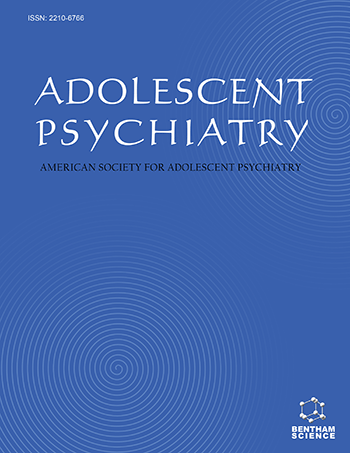Abstract
Interest in the effectiveness of psychological interventions in patients with psychosis has increased in the last 2 decades, and early intervention programs are increasingly common. PIENSA (Programa de Intervención en Psicosis Adolescente; Intervention Program for Adolescent Psychosis) is a clinical program and pilot study based on previous research into the efficacy of early intervention in preventing relapse and improving outcome in patients with first-episode psychosis.
We describe a psychoeducational intervention designed for adolescents with early-onset psychosis and their parents. The intervention is adapted from McFarlane’s Multiple Family Therapy model to our setting and population (adolescents treated in the Spanish public health system). It consists of 2 stages: an individual stage comprising 3 sessions and a subsequent group stage comprising 12 sessions. The total program lasts for 1 academic year (9 months).
We present the design of our program and our preliminary experience in a Child and Adolescent Unit in Spain.
Keywords: Adolescents, family intervention, group therapy, psychoeducational, psychosis, treatment.
Adolescent Psychiatry
Title:PIENSA: Development of an Early Intervention Program for Adolescents With Early-Onset Psychosis and Their Families
Volume: 2 Issue: 3
Author(s): Ana Ruiz-Sancho, Ana Calvo, Marta Rapado-Castro, Miguel Moreno, Carmen Moreno, Teresa Sanchez-Gutierrez, Cecilia Tapia, Guadalupe Chiclana, Pamela Rodriguez, Patricia Fernandez, Celso Arango and Maria Mayoral
Affiliation:
Keywords: Adolescents, family intervention, group therapy, psychoeducational, psychosis, treatment.
Abstract: Interest in the effectiveness of psychological interventions in patients with psychosis has increased in the last 2 decades, and early intervention programs are increasingly common. PIENSA (Programa de Intervención en Psicosis Adolescente; Intervention Program for Adolescent Psychosis) is a clinical program and pilot study based on previous research into the efficacy of early intervention in preventing relapse and improving outcome in patients with first-episode psychosis.
We describe a psychoeducational intervention designed for adolescents with early-onset psychosis and their parents. The intervention is adapted from McFarlane’s Multiple Family Therapy model to our setting and population (adolescents treated in the Spanish public health system). It consists of 2 stages: an individual stage comprising 3 sessions and a subsequent group stage comprising 12 sessions. The total program lasts for 1 academic year (9 months).
We present the design of our program and our preliminary experience in a Child and Adolescent Unit in Spain.
Export Options
About this article
Cite this article as:
Ruiz-Sancho Ana, Calvo Ana, Rapado-Castro Marta, Moreno Miguel, Moreno Carmen, Sanchez-Gutierrez Teresa, Tapia Cecilia, Chiclana Guadalupe, Rodriguez Pamela, Fernandez Patricia, Arango Celso and Mayoral Maria, PIENSA: Development of an Early Intervention Program for Adolescents With Early-Onset Psychosis and Their Families, Adolescent Psychiatry 2012; 2 (3) . https://dx.doi.org/10.2174/2210676611202030229
| DOI https://dx.doi.org/10.2174/2210676611202030229 |
Print ISSN 2210-6766 |
| Publisher Name Bentham Science Publisher |
Online ISSN 2210-6774 |
 20
20
- Author Guidelines
- Graphical Abstracts
- Fabricating and Stating False Information
- Research Misconduct
- Post Publication Discussions and Corrections
- Publishing Ethics and Rectitude
- Increase Visibility of Your Article
- Archiving Policies
- Peer Review Workflow
- Order Your Article Before Print
- Promote Your Article
- Manuscript Transfer Facility
- Editorial Policies
- Allegations from Whistleblowers
Related Articles
-
New Pathways of Intervention for Adolescents at Clinical High Risk of Psychosis: Improving Meta-representation Skills and Strengthening Identity with Video-Confrontation Techniques
Adolescent Psychiatry Editorial: Risks and Opportunities in Adolescence
Adolescent Psychiatry Clinical, Psychosocial and Family Characteristics of Suicide Attempts Among Greek Adolescents
Adolescent Psychiatry Selected Abstracts from 2011 ISAPP Congress in Berlin Adolescence-A Second Chance?
Adolescent Psychiatry Multicultural Issues in Child and Adolescent Psychiatry in Ireland
Adolescent Psychiatry Self Destructive and Self Harm Behavior in Adolescence — An Integration of Dynamic and Empirical Psychological Models
Adolescent Psychiatry Child Welfare and Juvenile Justice in Lithuania: Historical and Critical Review
Adolescent Psychiatry Promoting Well-being and Resilience in Employing a Relationship Centered Approach: A Case Study of a Pre-adolescent Boy
Adolescent Psychiatry Child Protection Issues: Incest—the Malaysian Scenario
Adolescent Psychiatry Childhood Hospitalisations for Physical Disease and Risk of Mental Disorders During Adolescence and Early Adulthood
Adolescent Psychiatry The Aftermath of Childhood Sexual Abuse: A Case Report and Review of the Literature
Adolescent Psychiatry Breaking the Chain of Abuse: A Therapeutic Approach for Adolescent Mothers and Their Children
Adolescent Psychiatry On Utilizing an Attachment-based Model for Assessment in Adolescence
Adolescent Psychiatry Children and War: A Personal Perspective on Childhood in World War II and Post-war Germany
Adolescent Psychiatry Remembrance and Historicization: The Transformation of Individual and Collective Trauma and its Transgenerational Consequences
Adolescent Psychiatry A Comparison of Child Mental Health Systems in France and the United States
Adolescent Psychiatry Etiology of Exhibitionism in Adolescence: A Case Example of Countershame Theory
Adolescent Psychiatry Child Welfare in Japan: Children’s Care Homes and Mental Health
Adolescent Psychiatry Transitional Age Youth with Serious Mental Illness: High Acuity Patients Requiring Developmentally Informed Care in the Inpatient Hospital Setting
Adolescent Psychiatry New Onset ADHD Symptoms in Adolescents and College Students: Diagnostic Challenges and Recommendations
Adolescent Psychiatry

























